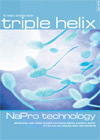The Soul of the Embryo begins by considering the account of creation in the Hebrew Scriptures. It then considers the largely mistaken but nevertheless influential foundations of Western thinking about embryology as laid down by Hippocrates and Aristotle. The widespread and approved practices of abortion and infanticide in ancient Greek and Roman societies are contrasted with their condemnation by rabbinic Judaism.
The book analyses the development of Christian reflection on the nature of the soul. Despite the fact that St Augustine was influenced by Plato and St Thomas Aquinas by Aristotle, both of these Christian thinkers agreed that the soul was naturally related to the body as the principle of life and that in the separated state the soul was incomplete until bodily resurrection. As for the origin of the soul, the dominant view of Catholic Christians from the fifth century has been that the soul is immediately created by God and is infused into the new human being. And as for the timing of ensoulment, although the earliest Christians appeared to have dated it from conception, in the Middle Ages the view that ensoulment took place at formation was dominant.
Two later developments led to a questioning of the belief that the soul was infused by God at formation. The first was the theological revolution of the Reformation, not least its questioning of medieval Aristotelianism. The second was the scientific revolution in the seventeenth century, which reshaped embryology as it did the other natural sciences.
The book proceeds to consider the development of the Catholic casuistical tradition concerning abortion, which focused on the question whether abortion to save the life of the mother was ethical. A minority opinion that such abortion was justified before ensoulment did not prevail.
The book later turns to the historical development of the criminal law on abortion. It notes the influence of the notion of delayed ensoulment on the common law's prohibition of abortion only after 'quickening'; of improved embryological knowledge on the tightening of the law in the nineteenth century to protect life from conception; and of the recharacterisation of abortion by many (including some Christians) as an act of compassion for the mother which helped account for the relaxation of the law by the Abortion Act 1967.
The final chapter of the book pulls together conclusions from the various disciplines that inform the book's examination of the status of the embryo: theology, philosophy, ethics, science and law. Jones concludes that the tradition's 'enduring desire to protect the human embryo'has been extraordinarily constant through two millennia of Christian thought and practice.
Archbishop Rowan Williams describes the book as 'a valuable contribution to a most important debate'. Quite so. It is to be highly recommended.
Adapted with permission from a Tablet review by John Keown, Rose Kennedy Professor of Christian Ethics at Georgetown University
































